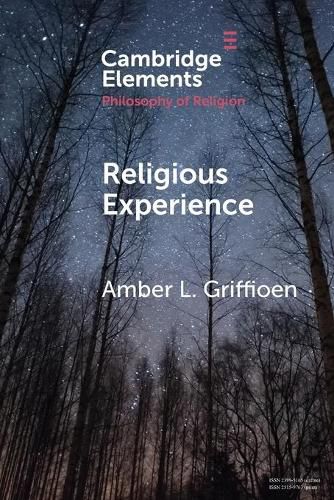Readings Newsletter
Become a Readings Member to make your shopping experience even easier.
Sign in or sign up for free!
You’re not far away from qualifying for FREE standard shipping within Australia
You’ve qualified for FREE standard shipping within Australia
The cart is loading…






This Element looks at religious experience and the role it has played in philosophy of religion. It critically explores the history of the intertwined discourses on mysticism and religious experience, before turning to a few specific discussions within contemporary philosophy of religion. One debate concerns the question of perennialism vs. constructivism and whether there is a ‘common core’ to all religious or mystical experience independent of interpretation or socio-historical background. Another central discussion concerns the epistemology of purportedly theophanic experience and whether a perceptual model of religious experience can provide evidence or justification for theistic belief. The Element concludes with a discussion of how philosophy of religion can productively widen its treatment of religious experience in the service of creating a more inclusive and welcoming discipline.
$9.00 standard shipping within Australia
FREE standard shipping within Australia for orders over $100.00
Express & International shipping calculated at checkout
This Element looks at religious experience and the role it has played in philosophy of religion. It critically explores the history of the intertwined discourses on mysticism and religious experience, before turning to a few specific discussions within contemporary philosophy of religion. One debate concerns the question of perennialism vs. constructivism and whether there is a ‘common core’ to all religious or mystical experience independent of interpretation or socio-historical background. Another central discussion concerns the epistemology of purportedly theophanic experience and whether a perceptual model of religious experience can provide evidence or justification for theistic belief. The Element concludes with a discussion of how philosophy of religion can productively widen its treatment of religious experience in the service of creating a more inclusive and welcoming discipline.